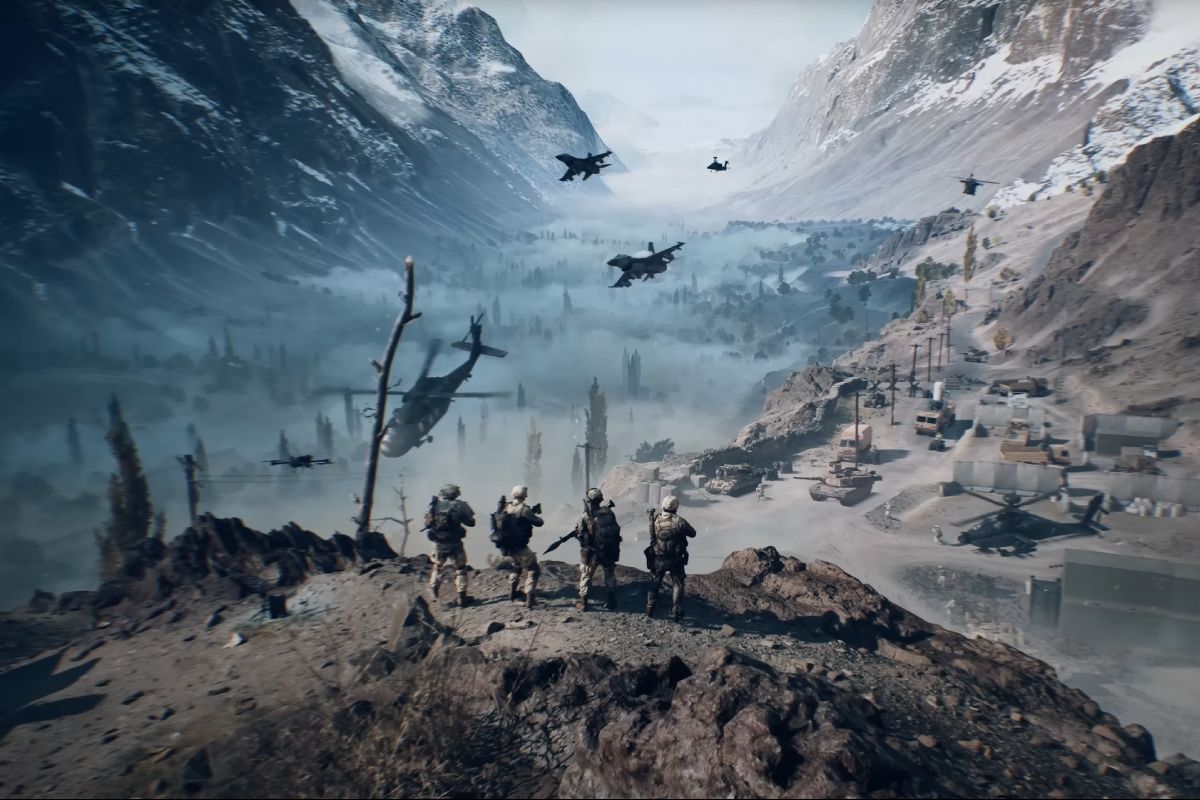EA Plans to Turn Battlefield Into Call of Duty — But at What Cost?
For years, Battlefield has been seen as the more ambitious and spectacular alternative to Call of Duty. But now, it might be following in its rival’s footsteps… and not necessarily in a good way. A rumor straight from industry insiders suggests that EA is preparing a strategy that could shake up the franchise’s very identity.
The news just dropped: Electronic Arts is reportedly considering turning Battlefield into an annual franchise, similar to the model that Call of Duty has followed for years. The idea would be to rotate development between several studios to guarantee a new release every year. A move that could bring big profits, but also put the series’ strengths at risk.

Image credit: Dice
A business model borrowed from Call of Duty
According to analyst Michael Pachter, Battlefield GM Byron Beede told him that EA is actively working to turn Battlefield into an annual franchise. The information was revealed in the latest episode of Pachter Factor.
Battlefield GM Byron Beede told Industry analyst Michael Patcher that the goal is to make Battlefield an Annual Title in 5-6 years.
"Their goal is 3 studios making Battlefield on a 3-year basis, so they can get to Battlefield annually", Patcher said. "It's going to take 5 or 6… pic.twitter.com/Nsp4sswEy5 — Battlefield Wire (@TheBFWire) August 17, 2025
The plan would be to expand across different settings, exploring modern warfare, historical conflicts, and even more experimental concepts like Battlefield Hardline. To achieve this, EA would coordinate development between three studios working simultaneously on distinct projects, each given three years to complete their title.
This approach would mirror Activision’s proven Call of Duty system, where Treyarch, Infinity Ward, and Sledgehammer Games take turns to maintain a yearly release cycle. The studios expected to take part in Battlefield’s rotation would be:
A risky bet for quality
While Activision’s strategy has been financially successful, it hasn’t been without criticism: player fatigue, repetitive gameplay, and above all, a sense that innovation has slowed down.
The Battlefield franchise, on the other hand, has always stood out for its ambitious and technically impressive experiences, which traditionally required 2–3 year development cycles. Moving to a yearly release raises serious concerns about the quality of future titles:
- Rushed releases that could make existing technical issues even worse.
- A lack of creative vision, with each studio racing to meet deadlines.
- A diluted identity, with the series turning into mass production.
To be clear, this wouldn’t happen overnight. Pachter notes that the annual cycle wouldn’t begin until between 2030 and 2031, giving the teams around 5–6 years to organize and refine their creative process.
A community still scarred by Battlefield 2042
You can’t talk about the future of the series without recalling the disastrous launch of Battlefield 2042. Released in November 2021, the game sparked outrage due to major bugs, a lack of content, and controversial design choices. The scale of the failure forced EA to deeply reconsider its strategy and extend the development cycle to give teams time to find the winning formula again.
That effort seems to be paying off with the next title: the reveal of Battlefield 6’s multiplayer mode promises a return to the franchise’s roots, with redesigned classes, a creative mode, and a bolder overall approach. The new game, which is already breaking records in its beta phase, seems to have learned from past mistakes.
It’s important to keep in mind that nothing is official yet. Michael Pachter may have misinterpreted his conversations, and EA has not confirmed this direction. The franchise’s future will also depend on the reception of Battlefield 6, scheduled for release on October 10 on PS5, Xbox Series X|S, and PC. If the game can hold players’ attention long-term, EA might ultimately abandon the annual release plan. For now, though, the rumor is already sparking a heated debate within the community: is it really worth sacrificing quality for the sake of consistency?









